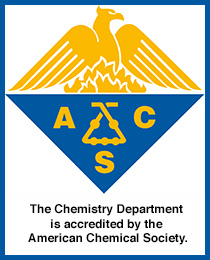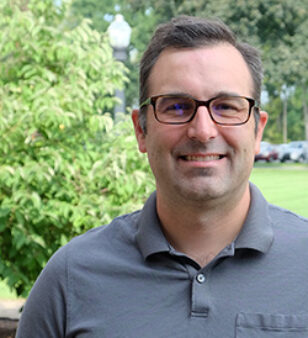As a biochemistry major, we see you studying the chemistry of molecules found in living organisms—particularly proteins, DNA/RNA, lipids and carbohydrates—in state-of-the-art labs equipped with the latest technology and instrumentation.
Our biochemistry major combines chemistry and biology coursework with considerable emphasis on the laboratory experience. It is designed to prepare you for graduate studies or for employment in industry, education, or the medical professions. Emerging career options involving the chemistry of living systems include:
- Medicine
- Pharmacology
- Pharmaceutical research
- Environmental chemistry
- Toxicology
- And more
How To Apply
Applying is free and straightforward—because we believe nothing should stand in the way of your dreams!

Dive A Little Deeper
Upcoming Admissions Events
Concentrations
At Cedar Crest College, you may choose any of the following tracks when studying biochemistry at the undergraduate level:
- A bachelor of science in biochemistry
- A co-major in biochemistry and forensic science
- A bachelor of science in biochemistry combined with a non-science major or minor, such as dance or global studies

Program Details
Some important information about the biochemistry major at Cedar Crest College:
- Through theoretical studies and laboratory experience, you will learn valuable critical thinking skills, research and oral presentation skills.
- Because this is a highly structured program, it is recommended that students interested in the biochemistry major consult the program advisor early in their academic sequence.
- As a capstone experience, juniors and seniors complete either a departmental research project or a corporate internship, which is summarized in a seminar presentation.

Accreditation

The Cedar Crest College chemistry program is accredited by the American Chemical Society
Faculty & Staff
Who’s teaching you is as important as the curriculum you choose.
Let’s put a face to some of the names you’ll be seeing on the course listings!
- Traditional Admissions
- admissions@cedarcrest.edu
- P: 800-360-1222
- F: 610-740-3780





